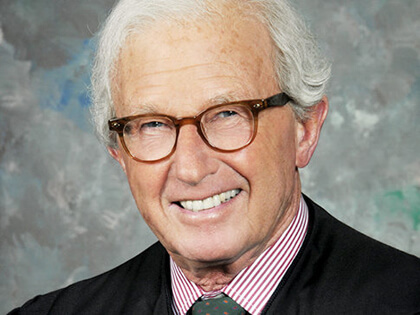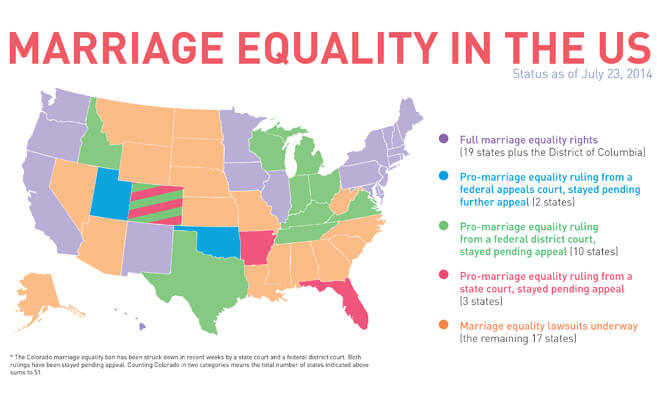BY ARTHUR S. LEONARD | Who knew? It is potentially a crime in Texas —and apparently several other states —to pose as somebody else on social media sites like Manhunt.net. And, according to a panel of the Texas Fifth District Court of Appeals, this prohibition does not violate anybody’s First Amendment rights.
Michael Dwain Bradshaw was charged with violating a Texas Online Impersonation statute that makes it a crime if a person “without obtaining the other person’s consent and with the intent to harm, defraud, intimidate, or threaten any person, uses the name or persona of another person to (1) create a web page on a commercial social networking site or other Internet website; or (2) post or send one or more messages on or through a commercial social networking site or other Internet website, other than on or through an electronic mail program or message board program.”
The indictment charges Bradshaw with “intentionally or knowingly using Joel Martin’s name or persona to post or send one or more messages on or though manhunt.net, an Internet website, without obtaining Martin’s consent, and with the intent to harm Martin.”
Texas court rejects free speech challenge to online impersonation law
In the August 23 opinion for the appeals panel, Justice Robert M. Fillmore does not get any more specific about the factual allegations against Bradshaw, focusing instead on refuting his First Amendment constitutional claims, among others. Represented by attorneys Mark W. Bennett and Toby L. Shook, Bradshaw, in a pretrial petition, sought to get the indictment quashed on the ground that the statute is unconstitutional on its face. A Dallas County Criminal Court judge denied the petition, and Bradshaw appealed to the Fifth District court.
Bradshaw’s first argument was that the law is unconstitutionally over-broad, “restricting a substantial amount of protected speech based on the content of the speech.” The state argued that the statute regulates only conduct and unprotected speech, and that any incidental effect on protected speech “is marginal when weighed against the plainly legitimate sweep of the statute.”
Justice Fillmore noted that Supreme Court precedents describe the overbreadth doctrine Bradshaw relied on as “strong medicine that is used sparingly and only as a last resort,” reserved for statutes presenting a “realistic” danger of inhibiting constitutionally protected speech. The Texas appellate court concluded that the “vast majority” of speech covered by the statute is not protected by the First Amendment, and agreed with the state’s argument that the law is mainly about regulating conduct.
“Impersonation is a nature-of-conduct offense,” wrote Fillmore, which “does not implicate the First Amendment unless the conduct qualifies as ‘expressive conduct’ akin to speech.”
Bradshaw contended that “using another’s name or persona to create a webpage, post a message, send a message” is inherently expressive conduct, but the court did not buy this argument, finding that the focus of the statute was on how someone uses another’s name or image.
“Any subsequent ‘speech’ related to that conduct is integral to criminal conduct and may be prevented and punished without violating the First Amendment,” wrote Fillmore.
For that reason, the court should not apply strict scrutiny to the impersonation statute —as it would with a law restricting speech based on its content —but rather “intermediate review,” in which the state need solely demonstrate that it advances a significant public interest.
The court concluded, contrary to Bradshaw’s argument, that the statute is content-neutral. It didn’t matter whose name or persona was being appropriated; it was the appropriation of identity, which the court saw as conduct, that was being punished, and then only if it was being done for purposes specified in the statute.
Looking to the law’s legislative history, Fillmore wrote that committee hearings in the Texas House of Representatives made clear its purpose was “to ‘deter and punish’ individuals who assumed the identity of another and sent false, harassing, or threatening electronic messages to the victim or a third party who was unaware of the perpetrator’s true identity. The committee noted that online harassment had resulted in suicide, threats of physical or mental abuse, and more, but ‘current Texas law does not provide a means of prosecuting some of the most egregious of these acts.’”
Fillmore continued, “There is nothing in the legislative history that would suggest the legislature was targeting or expressing its disagreement with any particular topic or viewpoint.”
The state interest served by the law, the court concluded, involves “protecting citizens from crime, fraud, defamation, or threats from online impersonation.”
The appeals panel also turned Bradshaw’s free speech argument on its head, concluding that the statute “also serves a significant First Amendment interest in regulating false and compelled speech on the part of the individual whose identity has been appropriated.”
In comparison, Bradshaw’s free speech “hypotheticals,” were insubstantial “in comparison to the statute’s plainly legitimate sweep over unprotected speech and conduct.”
Bradshaw also attacked the law under the 14th Amendment Due Process Clause as unduly vague, not giving specific enough warning to people about what conduct crossed the line of legality. Here, the court concluded, the legislature gave clear notice by defining the “harm” prohibited as “anything reasonably regarded as loss, disadvantage, or injury, including harm to another person in whose welfare the person affected is interested,” and adding particulars including harm to computer data and “any other loss, disadvantage, or injury that might reasonably be suffered as a result of the actor’s conduct.”
Even armed with only a dictionary, Fillmore wrote, a “person of ordinary intelligence” would have “fair notice of what the statute prohibits.”
Bradshaw also tried to raise an interstate commerce argument that the law placed “regulations on Internet users everywhere,” something Fillmore also rejected.
“Evenhanded local regulation intended to effectuate a legitimate local public interest that has only incidental effects on interstate commerce will be upheld,” he wrote, “unless the burden imposed on such commerce is clearly excessive in relation to the putative local benefits.” Any incidental burden, the court concluded, was offset by Texas’ significant interest in protecting its citizens.
All of which leaves us to wonder about the facts of this case. Did Bradshaw use Martin’s picture or name to cruise on Manhunt.net, to lure people into compromising situations, or to engage in conduct that would damage Martin’s reputation or subject him to liability or prosecution if attributed to him? If this case goes to trial and produces written opinions or attracts media attention, perhaps we will find out. If, as is true in the overwhelming majority of criminal prosecutions, Bradshaw accepts a plea bargain offered by the prosecution, we may never know.

































